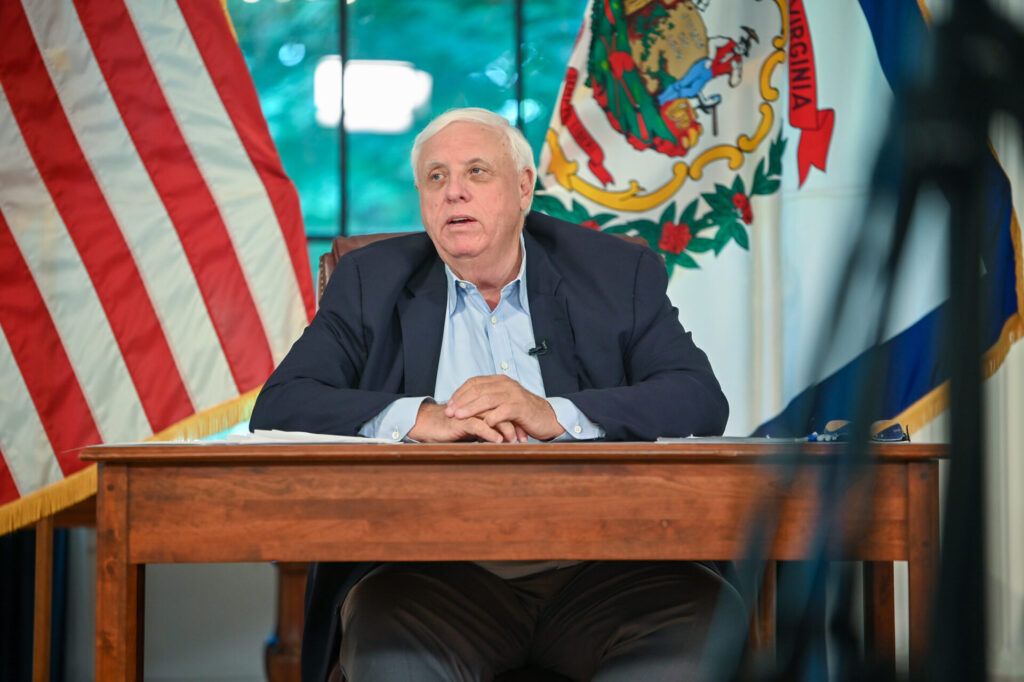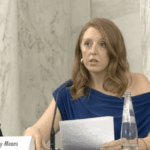Another state tries to weaken school vaccine rules
By Matt Field | April 3, 2024
 West Virginia Gov. Jim Justice giving an update on COVID-19.
West Virginia Gov. Jim Justice giving an update on COVID-19.
Every state in the country requires school children to be vaccinated against measles and other vaccine-preventable diseases. Those policies have been in place for decades, but during the COVID pandemic, a handful of states worked to weaken them—mainly by making it easier for individuals to claim exemptions. West Virginia lawmakers recently took the crusade against routine vaccinations a step further, passing a bill to allow private and parochial schools to set whatever rules they see fit.
The bill was another indication of the reach and ambition of anti-vaccine politicians and activists across the country who have successfully targeted policies for both COVID and routine vaccines. The West Virginia measure died with Gov. Jim Justice’s veto last week, but only after a wide majority of state senators and delegates passed it in the first place. They claim they’ll try again.
“As a result of the veto, what we’re going to have is a renewed debate next year. And we’ll have a new governor next year—and I think that new governor, if I look at the options that are on the table, I feel pretty confident the new governor won’t veto any sort of vaccine bill, and I would expect that the bill that passes through next year might be a bit bigger,” Mike Stewart, a state senator, told the West Virginia outlet Metro News.
School vaccine requirements have been around in the United States since the 1850s. According to Columbia University public health historian James Colgrove, with health officials bemoaning high rates of measles in the 1960s, many states began to implement the policies, facing very little opposition as they did. By 1981 every state had such requirements.
While there have long been, Colgrove says, “scattered” lawsuits targeting the rules, the COVID pandemic saw an intense level of legal and legislative attacks on vaccination, as public health became a major and polarizing political issue. In addition to targeting COVID vaccine requirements, those efforts also sought to expand exemptions for school vaccinations.
A new law in Montana requires school communications about vaccines to include links to exemption forms. A Tennessee law stipulates that home school parents aren’t required to prove that their children have received the immunizations and health exams that are required of public-school students. A court ruling forced Mississippi to allow for religious exemptions to its vaccine requirements.
According to the Centers for Disease Control and Prevention (CDC), 93 percent of kindergarteners received the measles, mumps, and rubella vaccine in the 2022-2023 school year, below the level required to stifle measles outbreaks.
By the end of March—barely three months into the year 2024—there had already been nearly twice as many measles cases in the United States as there were in all of 2023. The measles vaccination, one of the standard required childhood immunizations, is highly effective at preventing the disease.
But those who don’t get the vaccine have a very high risk of coming down with measles: About 20 percent of unvaccinated people who get sick wind up hospitalized. In addition to flu symptoms and a characteristic rash, measles can cause pneumonia and brain swelling; three in 1,000 infected children may die.
Last year the CDC reported that parental exemption requests to school vaccines had reached a record high. (West Virginia is one of the few states that don’t provide parents with the option of seeking a religious exemption.)
Governor Justice, who is running for the US Senate seat currently held by Democrat Joe Manchin, who is retiring, cited looser rules in states close to West Virginia in his veto letter. “[T]he vaccines at issue have been required in this State for decades and have kept our communities safe,” said the governor. “Our surrounding states, however, have seen spikes in such illnesses recently. These spikes, we are advised, are the result of the lesser vaccine requirements in those states.”
In response to a post on X by Justice on his veto, his opponent in the Republican primary posted: “Once again, this is further proof that Justice is what he has been all along: a big government RINO,” using an acronym standing for Republican in name only. (While Justice was elected as a Democrat in 2016, he quickly switched parties and became a Republican. He won former President Donald Trump’s endorsement and pledged to support Trump even if he were convicted of a crime. “Would I stand with him arm and arm? You’re dadgum’ right,” The Parkersburg News & Sentinel reported Justice as saying.)
The West Virginia bill, in addition to allowing private and parochial schools leeway in setting vaccine policies, would also have exempted virtual public school students from requirements.
Anti-vaccine views have attained new prominence in recent years, and in some case, officials holding them are able to exercise real power. In Florida, the state’s top doctor said that unvaccinated children would not need to stay home during a measles outbreak there, contradicting standard public health practice. And although he is unlikely to win, anti-vaccine activist Robert Kennedy Jr. regularly makes headlines in the mainstream press and is considered a potential spoiler in the 2024 election.
While West Virginia medical providers cheered Justice’s veto, one of the candidates vying to replace Justice as governor, Secretary of State Mac Warner, has already said he would have signed the package. “This is not a case that calls for the governor to single-handedly thwart the will of the people,” he told Metro News.
Together, we make the world safer.
The Bulletin elevates expert voices above the noise. But as an independent nonprofit organization, our operations depend on the support of readers like you. Help us continue to deliver quality journalism that holds leaders accountable. Your support of our work at any level is important. In return, we promise our coverage will be understandable, influential, vigilant, solution-oriented, and fair-minded. Together we can make a difference.
Keywords: 2024 election, COVID-19, vaccination
Topics: Biosecurity















